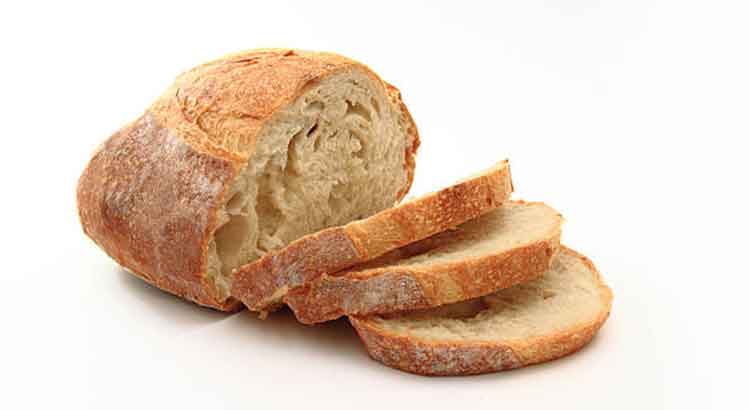Have you ever pulled a fresh loaf of bread from the oven and noticed a strange, unexpected odor wafting through your kitchen? Is your homemade bread not smelling as delightful as you’d hoped? Well, don’t fret because we’re here to demystify those unusual bread odors and tackle seven common bread problems.
The most common reason for that weird bread smell is the fermentation process. As yeast and bacteria work their magic, they produce various compounds, some of which can have unique odors. These odors are typically harmless but can be surprising.
So while your bread may not always smell like a fragrant bouquet, it’s essential to understand what’s happening in the dough and how to make your loaves as delicious as possible. In this article, we’ll explore the science behind bread smells, and we’ll share valuable tips and solutions to help you bake perfect, aromatic bread every time. Get ready to uncover the secrets of sensational bread-making!
Stale Bread Odor
When you’ve just taken your freshly baked bread out of the oven, you expect that warm, inviting aroma to fill your kitchen. But what happens when you’re greeted by a stale or weird smell instead? The culprit behind this issue is often the bread’s storage.
Storing your bread incorrectly can lead to the loss of that delightful aroma. The most common problem is improper airtight sealing. When bread is exposed to air, it can become stale quickly. The starches in the bread crystallize, causing the odd odor. The remedy here is to keep your bread in an airtight container or a resealable bag. This preserves the freshness and prevents that off-putting smell from creeping in.
Another factor is moisture. When your bread is stored in a humid environment, it can absorb excess moisture, leading to staleness. The solution? Ensure your bread is entirely cool before storing it. Warm bread in an airtight container can create condensation, which accelerates staleness.
Mold Growth
No one wants to discover mold on their bread. It’s not only unsightly but also a health concern. The presence of mold can result in a weird, unpleasant smell emanating from your loaf. Mold spores are all around us, and they love to find their way onto bread.
The key to preventing mold growth is moisture control. Mold thrives in damp conditions. So, make sure your bread is entirely cooled before storing it. When bread is warm, it creates condensation in the storage container, creating a perfect environment for mold to develop. To further deter mold, you can also store bread in the refrigerator or freezer. The cold temperature helps inhibit mold growth.
Bacterial Spoilage
Sometimes, that peculiar smell in your bread might not be stale or moldy; it could be due to bacterial spoilage. The most common bacteria responsible for this issue is called Bacillus. Bacillus is present in our environment, and its spores can find their way into your homemade bread.
To avoid bacterial spoilage, be sure to bake your bread thoroughly. Properly baking your bread kills off these bacteria and their spores. Additionally, allow your bread to cool completely before storing it. When warm bread is placed in a storage container, it creates condensation, which can encourage bacterial growth.
Rancid Fats
If your bread is giving off an unpleasant, weird odor, it might be related to the fats used in the recipe. Fats can go rancid over time, especially if they’re exposed to heat and light. This rancidity can result in an off-putting smell in your bread.
To prevent this problem, store your fats, such as butter or oils, in a cool, dark place. Using fresh fats in your bread recipe will help maintain a pleasant aroma. Also, consider the type of fat you’re using. Some fats have a stronger flavor, which can influence the scent of your bread. Opt for neutral or lighter fats if you prefer a milder aroma.
Contaminated Ingredients
When you’ve put love and care into making homemade bread, the last thing you want is for weird smells to ruin your hard work. Sometimes, those odd odors can be traced back to contaminated ingredients.
The most common culprits here are the flour and water used in your bread recipe. If either of these ingredients is not stored properly, they can become a breeding ground for unwanted microbes. For instance, flour can become contaminated with insects, their eggs, or even fungal spores if not stored in an airtight container. Likewise, unfiltered or unchlorinated water can introduce bacteria into your dough.
To prevent these issues, make sure you store your flour in a sealed, airtight container. Additionally, use clean, filtered, or chlorinated water when preparing your bread dough. By maintaining the quality of your ingredients, you can avoid that weird, off-putting odor and enjoy fresh, delightful homemade bread.
Final Thoughts
Baking bread at home can be a delightful experience. The process, from mixing the ingredients to the wafting aroma of a fresh loaf, is a rewarding journey. However, as we’ve explored, there are several common problems that can lead to weird smells in your bread. Understanding the causes and taking simple steps can help you avoid these issues and enjoy scrumptious homemade bread every time.
Proper storage is key to preventing stale bread odor and mold growth. Ensuring your bread is cooled completely before sealing it in an airtight container or resealable bag can make a world of difference. Keeping your bread in a refrigerator or freezer can also deter mold. Remember, mold loves moisture, so make sure to eliminate condensation in your storage container.
Bacterial spoilage and rancid fats are less common but equally important factors in the scent of your bread. Ensuring your bread is thoroughly baked and properly cooled can ward off bacterial spoilage. Using fresh fats, stored in a cool, dark place, will help you maintain a pleasant aroma. Also, the type of fat you use plays a role, so consider using neutral or lighter fats for a milder scent. Lastly, keep an eye on the quality of your ingredients to avoid contaminated flour and water. Store your flour in a sealed container and opt for clean, filtered, or chlorinated water to keep your bread dough pure and free from off-putting odors.
In the world of bread baking, small adjustments and careful attention to detail can make a big difference in the outcome. With these insights and tips, you’re well-equipped to tackle common bread problems and ensure that the next time you bake, your kitchen will be filled with the delightful scent of freshly baked bread. Happy baking!
FAQ
Q: Why does my bread have a strong, sour smell after baking?
A: If your bread has a sour smell, it could be due to overfermentation. Yeast and bacteria in your dough can produce excess acids, resulting in that sour odor. To avoid this, ensure your dough doesn’t overproof, which means letting it rise too long. Adjusting your proofing time and temperature can help maintain a more balanced flavor.
Q: How can I get rid of the burnt smell in my bread?
A: A burnt smell typically means your bread was overbaked or baked at too high a temperature. To fix this, adjust your oven temperature and baking time. Also, try placing an aluminum foil tent over the bread during the last part of baking to prevent further browning. Next time, keep a close eye on your bread as it bakes to achieve that perfect golden-brown crust without the burnt smell.
Q: What causes my bread to smell like alcohol or acetone?
A: A bread that smells like alcohol or acetone might be suffering from a fermentation issue. It could result from an overproduction of ethanol or acetic acid during the fermentation process. To prevent this, make sure your dough doesn’t overferment. Additionally, using a starter with a more balanced yeast-to-bacteria ratio can help mitigate these strong odors.
Q: Can the type of flour I use affect the smell of my bread?
A: Yes, the type of flour can influence the aroma of your bread. Different flours have distinct flavor profiles. Whole wheat flour, for example, can impart a nuttier and heartier aroma, while all-purpose flour is more neutral. Experimenting with different flours can lead to exciting variations in the scent of your bread.
Q: What should I do if my bread smells like onions or garlic?
A: If your bread has an unexpected onion or garlic odor, it might be due to cross-contamination in your kitchen. Be mindful of the tools and surfaces you use for baking. Ensure they are thoroughly cleaned and free from any lingering odors from previous cooking. Properly store ingredients like onions and garlic away from your bread-making supplies to prevent flavor transfer.
Q: How can I maintain a consistent, pleasant aroma in my bread?
A: To ensure your bread consistently smells delightful, follow these key tips:
- Quality Ingredients: Start with fresh and high-quality ingredients. This includes using unexpired flour, fresh fats, and properly filtered or chlorinated water.
- Proper Fermentation: Pay attention to your dough’s fermentation time and temperature. Avoid overfermentation, which can lead to off-putting odors.
- Storage: Store your bread correctly in airtight containers, in the refrigerator, or freezer to maintain freshness and prevent staleness or mold.
- Cleanliness: Keep your kitchen tools and surfaces clean and free from strong odors. Store ingredients properly to avoid cross-contamination.
- Experiment: Don’t be afraid to experiment with different flours and ingredients to discover new and exciting aromas for your bread.
Baking bread is a delightful art, and with the right knowledge and practice, you can master the balance of flavor and aroma in your loaves. These FAQs are here to guide you, so you can enjoy the wonderful scent of freshly baked bread every time you step into your kitchen. Happy baking!

